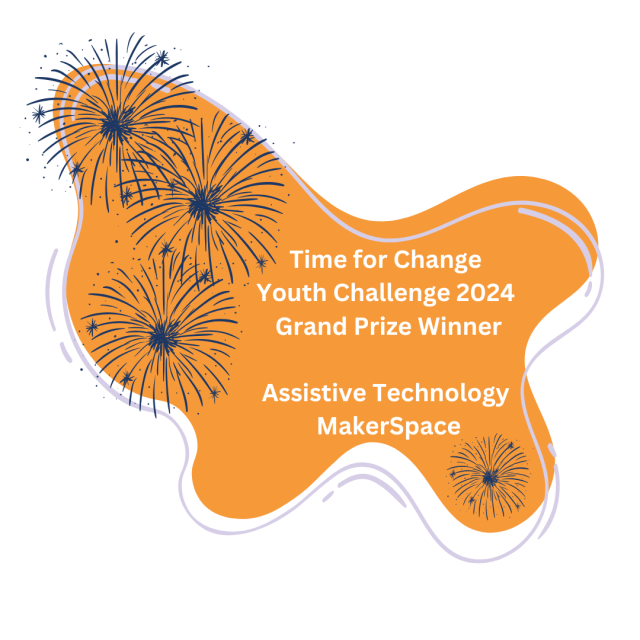
Assistive Technology MakerSpace: Our Disabilities Can't Slow Us Down!
GRADE | 5, 6, & 7
LOCATION | Brooklyn, New York
Grand Prize Winner
Sid's Changemakers - 5th, 6th, and 7th graders - in Brooklyn, New York, want to establish a Maker Space to create tools that support learners with Individualized Education Programs, creating things like sensory fidgets for self-regulation and adaptive writing tools for non-verbal students. The team noticed that there is a lack of tools that they need to learn and communicate with one another, so they want to create a Maker Space where they can 3D print the tools and devices they need.
The students know that creating more of these tools will help them in their learning and social goals, so they plan to create a club for 3D printing the tools and teach other students how to do it for themselves, creating community, fostering excitement, and building engagement and self-efficacy.
This project was chosen as a Grand Prize Winner because the panel of judges loved the strong connection to community that the classroom demonstrated in their application. They thought that this project was an incredible way to weave connections within the school community and build engagement and self-efficacy, all while producing useful tools for students who need them.
Assistive Technology MakerSpace: Our Disabilities Can't Slow Us Down!
GRADE | 5, 6, & 7
LOCATION | Brooklyn, New York
Grand Prize Winner
Sid's Changemakers - 5th, 6th, and 7th graders - in Brooklyn, New York, want to establish a Maker Space to create tools that support learners with Individualized Education Programs, creating things like sensory fidgets for self-regulation and adaptive writing tools for non-verbal students. The team noticed that there is a lack of tools that they need to learn and communicate with one another, so they want to create a Maker Space where they can 3D print the tools and devices they need.
The students know that creating more of these tools will help them in their learning and social goals, so they plan to create a club for 3D printing the tools and teach other students how to do it for themselves, creating community, fostering excitement, and building engagement and self-efficacy.
This project was chosen as a Grand Prize Winner because the panel of judges loved the strong connection to community that the classroom demonstrated in their application. They thought that this project was an incredible way to weave connections within the school community and build engagement and self-efficacy, all while producing useful tools for students who need them.
The problem we want to solve is getting the tools my friends and we need to learn and communicate. The tools we need are call assistive technologies. We don't have enough things like communication boards to talk to each other, adaptive writing tools to write our ideas easier, and sensory fidgets to help us concentrate better. As members of student council, we asked students at each of our sites to get an idea of what might help them achieve their IEP (Individualized Education Program) goals in different subjects. Getting the tools we need to learn is important to us because we can spend more time learning and less time struggling.
We want to have a MakerSpace club to make the assistive technology tools (sensory fidgets, adaptive writing tools, and communication boards) using different things. We can use a 3D printer to make adaptive writing tools and sensory fidgets. We can also use different jars, containers, and silicone molds to make sensory jars and stress balls. We have seen communication boards using velcro and laminating sheets and stickers to make them cool. If we can make this a club on Fun Fridays, we can teach our friends from other classes how to make tools that will help them learn better. We have learned a lot about what our friends need since we talk to them as part of our student council duties. We can make learning fun again!
The members of our team are from the Student Council. The teacher in charge of student council will also help us a lot. Every student in our school has different learning needs and will want cool tools to help them learn. Who doesn't want to learn how to make a sensory fidget that will help them in their SEL learning. A lot of our communication and social emotional and behavioral goals include self-regulation and using different strategies and tools. We have writing goals that adaptive writing tools will help us achieve faster. Communication boards will help our non-verbal friends, who are our friends that need pictures and devices to help them talk, tell us their ideas and answer questions better. Kids will pay attention to the problem we want to solve because it will help them make learning easier and school more fun.